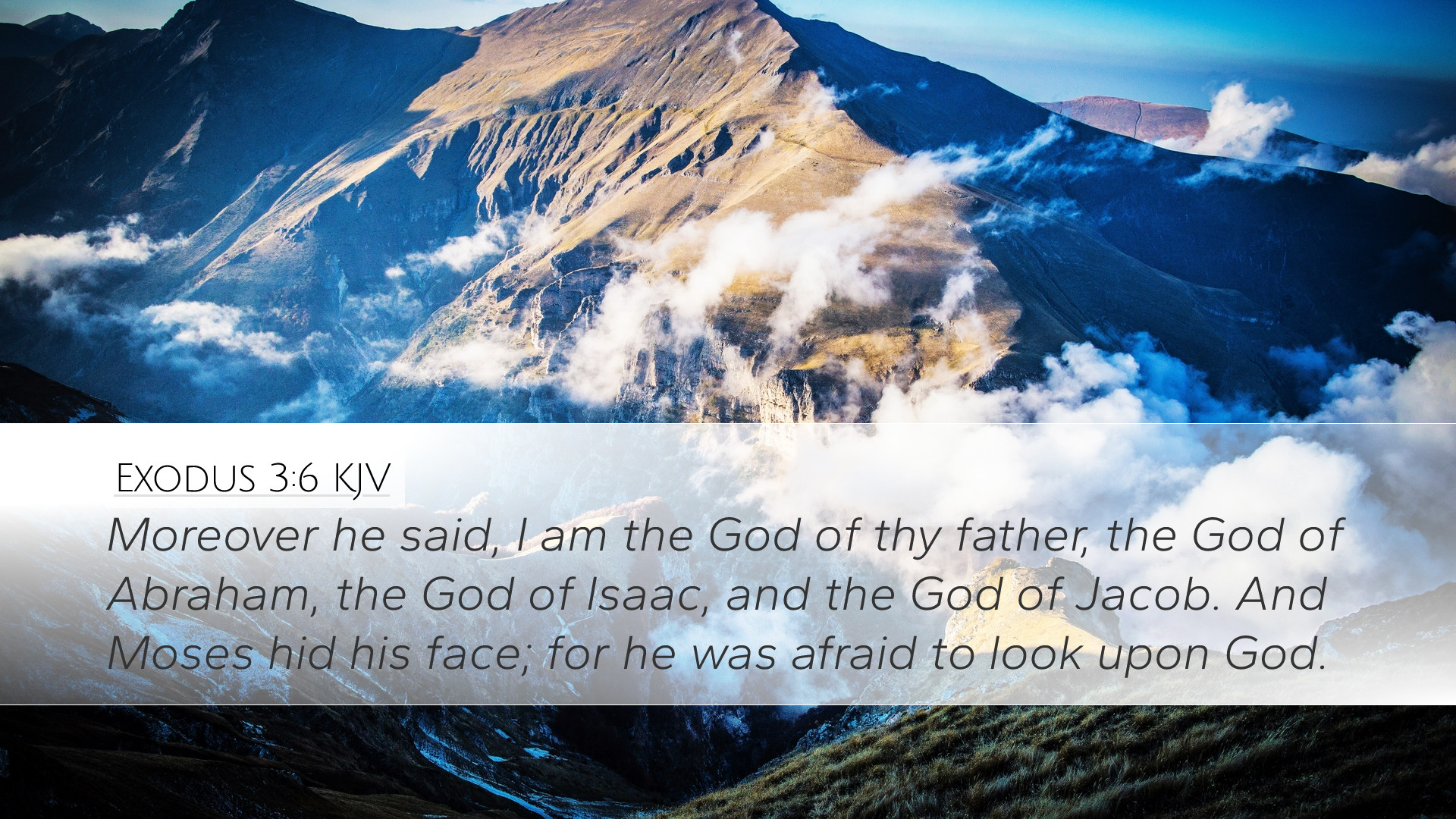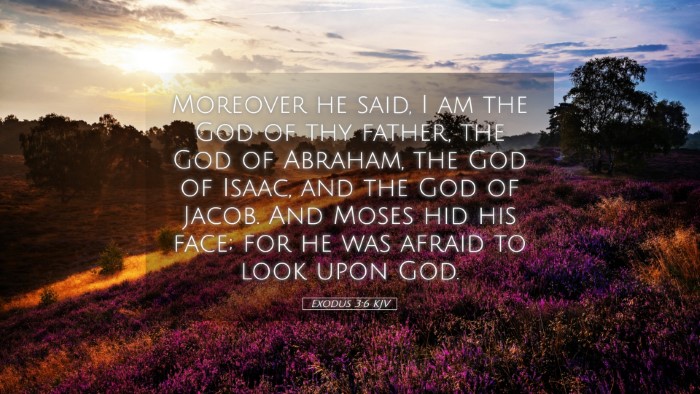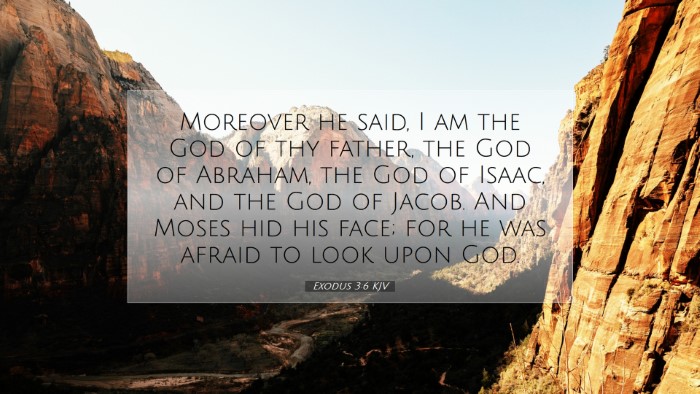Commentary on Exodus 3:6
Verse Context: Exodus 3:6 states, "Moreover, He said, 'I am the God of your father, the God of Abraham, the God of Isaac, and the God of Jacob.' And Moses hid his face, for he was afraid to look at God."
Introduction
The verse in Exodus 3:6 encompasses a profound revelation of God's identity and relationship with humanity, particularly with the patriarchs of Israel. This moment occurs at the burning bush, where God initiates a dialogue with Moses, marking a pivotal transition in the narrative of Israel's deliverance from Egypt. Through this verse, we glean insights into the character of God, the significance of covenant, and the nature of divine calling.
The Divine Declaration: "I am the God of your father"
Understanding God's Name: The phrase "I am the God of your father" signifies the eternal nature of God, reflecting on His covenantal promise. Matthew Henry emphasizes that the name reveals not just a title, but a personal relationship; God identifies Himself as the God associated with Abraham, Isaac, and Jacob, the covenant patriarchs. This invocation of their names serves as a reminder of God's past faithfulness and His promise to be with His people (Henry).
The Covenant Connection: Albert Barnes notes that this declaration of divine relationship underscores the continuity of God's covenantal promises across generations. God’s identification with the patriarchs also establishes the legitimacy of Moses' mission; it reinforces his role as a mediator between God and Israel, rooted in the historical faith of their forefathers (Barnes).
The Theological Implications of "I am"
The Nature of God: The statement "I am" encapsulates God's self-existence and unchanging nature. Adam Clarke explains that by using the present tense, God highlights His eternal presence and existence through past, present, and future. This aspect of God is foundational to understanding His reliability and sovereignty in the face of human uncertainty (Clarke).
The Fear of God: The subsequent reaction of Moses—hiding his face—indicates an acute awareness of the holiness of God. Henry elaborates on this response, suggesting that it illustrates the proper reverence and fear that should accompany any encounter with the divine. Moses’ fear is an acknowledgment of God's transcendence and holiness, a sentiment echoed throughout the scriptures where those who encounter God often respond with fear and awe (Henry).
Application for Today's Believers
This encounter provides critical insights for pastors, theologians, and students of the Bible.
- Understanding God's Character: Just as Moses received information about God's identity, believers today are called to seek a deeper understanding of who God is and what He represents in their lives.
- The Importance of Covenant: The covenant established with the patriarchs reflects God's ongoing commitment to His people. This should encourage contemporary believers to trust in God's promises as reflected in scripture.
- Reverence in Worship: The fear demonstrated by Moses serves as a reminder for modern worshipers to approach God with humility and awe. This reverence is essential in fostering a genuine relationship with the Almighty.
- The Call to Action: Moses' appointment as a leader illustrates an essential aspect of God's work through individuals. God calls each believer to a purpose, and understanding His nature equips them for service.
Conclusion
Exodus 3:6 stands as a significant verse illustrating God's profound self-revelation and the concomitant call to Moses. The complex interplay of divine identity, covenant relationship, and human response offers rich theological implications for the church today. By reflecting on the narratives of our spiritual forebears, we grasp the continuity of God's plan through history and recognize His active presence in our lives.


